These are some of the newest members of the social sciences faculty at UC Davis.
Anujit Chakraborty
Assistant Professor of Economics
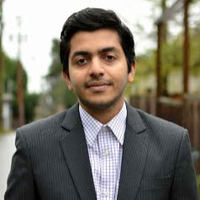 Anujit Chakraborty joined UC Davis in July 2017, having earned his Ph.D. at the University of British Columbia. His research interests include economic theory, behavioral economics, and experimental economics.
Anujit Chakraborty joined UC Davis in July 2017, having earned his Ph.D. at the University of British Columbia. His research interests include economic theory, behavioral economics, and experimental economics.
Previously a student at the Indian Statistical Institute and Jadavpaur University, Chakraborty enjoys soccer, amateur programming, and reviewing restaurants on Yelp. His co-authored paper "External and Internal Consistency of Choices made in Convex Time Budgets" is forthcoming in Experimental Economics.
Howard Chiang
Assistant Professor of History
Born in Taiwan and raised in Canada, Howard Chiang is interested in the 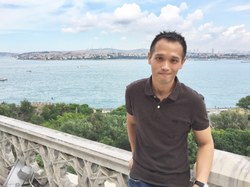 cultural and global history of 20th-century China, with a thematic focus on science, medicine, gender, and sexuality. His first book, After Eunuchs: Science, Medicine, and the Transformation of Sex in Modern China (2018), analyzes the history of sex change in China from the demise of castration in the late Qing era to the emergence of transsexuality in postwar Taiwan. He is currently working on two new projects: one on transgender theory in the Sinophone world and another on the history of psychoanalysis in global Chinese culture.
cultural and global history of 20th-century China, with a thematic focus on science, medicine, gender, and sexuality. His first book, After Eunuchs: Science, Medicine, and the Transformation of Sex in Modern China (2018), analyzes the history of sex change in China from the demise of castration in the late Qing era to the emergence of transsexuality in postwar Taiwan. He is currently working on two new projects: one on transgender theory in the Sinophone world and another on the history of psychoanalysis in global Chinese culture.
Chiang earned his Ph.D. at Princeton University in 2012. Before joining UC Davis, he taught as an assistant professor at the University of Warwick, United Kingdom, and as a nominated Canada Research Chair at the University of Waterloo in Canada.
Orly Clergé
Associate Professor of Sociology
 Orly Clergé will join UC Davis in fall 2018 from Tufts University, where she is currently an assistant professor of sociology and Africana studies. She received her Ph.D. in sociology and social demography from Brown University in 2013, after which she worked as a postdoctoral associate for the Yale Urban Ethnography Project.
Orly Clergé will join UC Davis in fall 2018 from Tufts University, where she is currently an assistant professor of sociology and Africana studies. She received her Ph.D. in sociology and social demography from Brown University in 2013, after which she worked as a postdoctoral associate for the Yale Urban Ethnography Project.
Clergé's research analyzes the diasporic black middle class in New York suburbs. Her research engages how black diasporas navigates their socio-economic mobility and continued racial exclusion simultaneously, and its implications for the racial, ethnic and class identity work.
Clergé's book project examines the growing social and spatial heterogeneity of middle class black American, Haitian and Jamaican diasporas. As the black middle class and the black immigrant population have burgeoned since the 1960s, various types of allegiances to being and belonging to the local, regional and transnational black community have emerged. In a two-sited ethnography of suburbs in New York, Clerge's book analyzes how the encounters between overlapping diasporas leads to the renegotiation around race, nation and empire among the diasporic class moyenne. A second book project analyzes how middle class black millennials define their racial and class identities in the age of Obama and #blacklivesmatter. These two texts come together to paint a timely picture of the heterogeneity of black political consciousness, diasporic cultures and class journeys to the American middle class.
Seth Frey
Assistant Professor of Communication
Seth Frey joined the UC Davis Computational Communication lab in July 2017. However, he  is currently on leave as a fellow at Dartmouth College’s interdisciplinary Neukom Institute for Computational Science. Previously, he was a postdoctoral researcher at Disney Research, a part of Walt Disney Imagineering, where he applied his expertise to both theoretical and practical questions about engineered social systems. In 2013, he earned a Ph.D. in cognitive science and informatics at Indiana University, after two years at the New England Complex Systems Institute.
is currently on leave as a fellow at Dartmouth College’s interdisciplinary Neukom Institute for Computational Science. Previously, he was a postdoctoral researcher at Disney Research, a part of Walt Disney Imagineering, where he applied his expertise to both theoretical and practical questions about engineered social systems. In 2013, he earned a Ph.D. in cognitive science and informatics at Indiana University, after two years at the New England Complex Systems Institute.
As a socially and computationally inflected cognitive scientist, Frey studies human decision behavior in complex social environments. In practice, he works back and forth between data science, behavioral experiments, and modeling to answer quantitative questions about human organizations, institutions, and communication.
Outside of research, he enjoys fixing bicycles, organizing for cooperative businesses, and writing for popular science venues. Hailing originally from the south Bay Area, he is drawn to California's Arts and Crafts era, and is eager to discover how far that heritage extended into the Central Valley.
Chris Hopwood
Associate Professor of Psychology
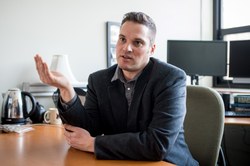 Chris Hopwood earned his Ph.D. in clinical psychology at Texas A&M University in 2008. Most recently, he was an associate professor of psychology at Michigan State University. His co-authored papers have appeared or are forthcoming in Clinical Psychology: Science and Practice, Journal of Personality Assessment, Journal of Abnormal Psychology and elsewhere. Hopwood’s current research foci include assessment and correlates of authentic behavior, assessment and correlates of personality dysfunction, integration of personality structure and dynamics, and assessment of healthy personality functioning.
Chris Hopwood earned his Ph.D. in clinical psychology at Texas A&M University in 2008. Most recently, he was an associate professor of psychology at Michigan State University. His co-authored papers have appeared or are forthcoming in Clinical Psychology: Science and Practice, Journal of Personality Assessment, Journal of Abnormal Psychology and elsewhere. Hopwood’s current research foci include assessment and correlates of authentic behavior, assessment and correlates of personality dysfunction, integration of personality structure and dynamics, and assessment of healthy personality functioning.
Diana Moreira
Assistant Professor of Economics
Diana Moreira is a Lemann Fellow. She earned her PhD in Business Economics at 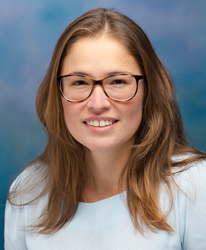 Harvard University, with a thesis entitled On Government Effectiveness: Organizational and Governance Limitations on the Delivery of Education. Her primary areas of specialization are development economics and public economics. Before beginning her doctoral studies, Moreira served as a consultant at the World Bank’s Washington, D.C., headquarters. Her co-authored paper "Corrupting Learning: Evidence from Missing Federal Education Funds in Brazil" was published in the Journal of Public Economics in 2012.
Harvard University, with a thesis entitled On Government Effectiveness: Organizational and Governance Limitations on the Delivery of Education. Her primary areas of specialization are development economics and public economics. Before beginning her doctoral studies, Moreira served as a consultant at the World Bank’s Washington, D.C., headquarters. Her co-authored paper "Corrupting Learning: Evidence from Missing Federal Education Funds in Brazil" was published in the Journal of Public Economics in 2012.
Moreira is also a Brazilian citizen who loves eating well. She loves Indian, Peruvian and Ethiopian cuisine, and misses the Brazilian cuisine. Bike rides are another of her passions. She bikes to work and enjoys 50-mile rides on weekends. She is excited to live in Davis, the bike capital of the US, and looking forward to exploring all the biking routes in Northern California.
Emily Morgan
Assistant Professor of Linguistics
 Emily Morgan earned her Ph.D. in Linguistics and Cognitive Science in 2016 at UC San Diego, with a dissertation entitled Generative and Item-Specific Knowledge of Language. Since then she has worked as a postdoctoral researcher in the Department of Psychology at Tufts University, and will join the Department of Linguistics at UC Davis in summer 2018.
Emily Morgan earned her Ph.D. in Linguistics and Cognitive Science in 2016 at UC San Diego, with a dissertation entitled Generative and Item-Specific Knowledge of Language. Since then she has worked as a postdoctoral researcher in the Department of Psychology at Tufts University, and will join the Department of Linguistics at UC Davis in summer 2018.
Morgan’s co-authored papers have appeared in Cognition and Cognitive Science. Her research asks how the language processing system integrates stored representations with incoming stimuli to form online expectations during language comprehension. For example, when one encounters a highly frequent phrase such as “bread and butter”, is this phrase represented and processed holistically as a single unit, or compositionally as a conjunction of nouns? To answer such questions, Morgan combines experimental psycho- and neurolinguistic methods, such as eye-tracking and ERPs, with probabilistic computational modeling.
In her spare time, she enjoys running and swing dancing.
Santiago Pérez
Assistant Professor of Economics
Santiago Pérez earned his Ph.D. at Stanford University and his MSc in Economics 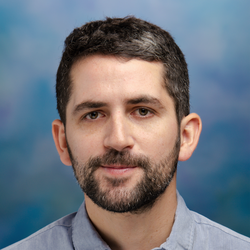 at the Universidad de San Andrés in Buenos Aires, Argentina. At UC Davis, he will be a faculty affiliate at the UC Davis Migration Research Cluster. His areas of specialization include economic history, development economics, and labor economics. His current work focuses on historical social mobility and on the labor market outcomes of international immigrants. His paper "The (South) American Dream: Mobility and Economic Outcomes of First- and Second-Generation Immigrants in 19th-Century Argentina" is forthcoming in The Journal of Economic History. Santiago will teach an undergraduate course titled "Economics of International Immigration" in fall 2017.
at the Universidad de San Andrés in Buenos Aires, Argentina. At UC Davis, he will be a faculty affiliate at the UC Davis Migration Research Cluster. His areas of specialization include economic history, development economics, and labor economics. His current work focuses on historical social mobility and on the labor market outcomes of international immigrants. His paper "The (South) American Dream: Mobility and Economic Outcomes of First- and Second-Generation Immigrants in 19th-Century Argentina" is forthcoming in The Journal of Economic History. Santiago will teach an undergraduate course titled "Economics of International Immigration" in fall 2017.
Lauren E. Young
Assistant Professor of Political Science
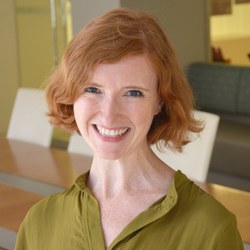 Lauren E. Young received her Ph.D. in political science with distinction from Columbia University and was a postdoctoral scholar at the Center for Democracy, Development and the Rule of Law (CDDRL) at Stanford and a non-resident postdoctoral fellow at the Center for Global Development (CGD).
Lauren E. Young received her Ph.D. in political science with distinction from Columbia University and was a postdoctoral scholar at the Center for Democracy, Development and the Rule of Law (CDDRL) at Stanford and a non-resident postdoctoral fellow at the Center for Global Development (CGD).
Her research aims to understand how individuals make decisions when faced with the threat of violence. Her book project investigates how citizens make decisions about participation in pro-democracy dissent in autocratic regimes. She argues that emotions shape perceptions of risks and risk aversion, and can therefore be used by elites to mobilize or demobilize civilians. She tests this theory in Zimbabwe using a mix of field experiments, lab-in-the-field experiments, quantitative analysis of historical trends, and in-depth qualitative interviews. In addition to her research on Zimbabwe, she has ongoing research projects in Eastern Europe, Haiti, Kenya, Mexico, and the US that explore how violence and other forms of coercion affect political and economic decision-making.
Young’s research has been funded by the National Science Foundation, United States Institute for Peace, and CEPR-DfID’s Public Enterprise Development in Low-Income Countries (PEDL) initiative, among others. It has been published in the Annual Review of Political Science and the Journal of Peace Research, and has been written up in the Washington Post Monkey Cage blog and the IPI Global Observatory.
Nicolas Caramp
Assistant Professor of Economics
Nicolas Caramp earned his Ph.D. in June 2017 at the Massachusetts Institute of 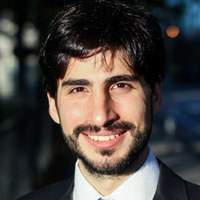 Technology, with a dissertation titled Essays on Macroeconomics and Financial Fragility. His primary areas of specialization are macroeconomics, finance, and international economics. His current research explores how information asymmetry in financial markets could have created the conditions that lead to the Great Recession. He also works on understanding the channels through which monetary policy affects the economy.
Technology, with a dissertation titled Essays on Macroeconomics and Financial Fragility. His primary areas of specialization are macroeconomics, finance, and international economics. His current research explores how information asymmetry in financial markets could have created the conditions that lead to the Great Recession. He also works on understanding the channels through which monetary policy affects the economy.
Before attending MIT, he studied at the Universidad Torcuato Di Tella in Buenos Aires, Argentina. Caramp is a soccer fan and has quickly adopted the local team, Sacramento Republic FC, as his own.
Randy Haas
Assistant Professor of Anthropology
 Randy Haas is an archaeologist and assistant professor of anthropology. He earned his Ph.D. in 2014 from The University of Arizona. Before joining the UC Davis faculty in 2017, he was a postdoctoral research associate at the Universities of Maryland and Wyoming.
Randy Haas is an archaeologist and assistant professor of anthropology. He earned his Ph.D. in 2014 from The University of Arizona. Before joining the UC Davis faculty in 2017, he was a postdoctoral research associate at the Universities of Maryland and Wyoming.
Haas studies the evolution of complex human behaviors among ancient forager societies. Before market and agricultural economies emerged around 10,000 years ago, forager economies were the only human economies on the planet for some 200 thousand years.
Haas uses the archaeological record of past forager societies to understand how our biology, cultures, and social organization evolved in forager contexts. His current work examines how early human populations of the Andes mountains of Peru adapted to physically challenging alpine environments above 3,800 meters in altitude and how cooperative social structures, potato and quinoa agriculture, and alpaca husbandry evolved between 12,000 and 3,500 years ago.
Brenna Henn
Associate Professor of Anthropology
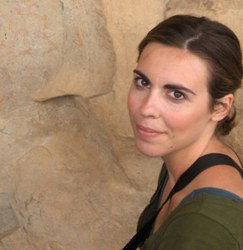 Brenna Henn began her Ph.D. by studying the deep population structure and complex migration patterns of African hunter-gatherer groups. She continues to have an interest in diverse, indigenous populations from around the world who harbor genetic (and linguistic and phenotypic) variation that is often overlooked in more commonly studied urban populations. Motivated by her prior Ph.D. (2009) training in anthropology and evolutionary genetics at Stanford University, she aims to approach questions of genetic and phenotypic diversity from an interdisciplinary standpoint.
Brenna Henn began her Ph.D. by studying the deep population structure and complex migration patterns of African hunter-gatherer groups. She continues to have an interest in diverse, indigenous populations from around the world who harbor genetic (and linguistic and phenotypic) variation that is often overlooked in more commonly studied urban populations. Motivated by her prior Ph.D. (2009) training in anthropology and evolutionary genetics at Stanford University, she aims to approach questions of genetic and phenotypic diversity from an interdisciplinary standpoint.
After her doctoral studies, Henn enjoyed a "personal genomics" interlude at 23andMe, Inc., working on their ancestry team and doing research development with Joanna Mountain. She then began a postdoctoral position in Carlos Bustamante’s lab (2010) in the Department of Genetics, Stanford University School of Medicine. During the postdoc, Henn led several African genomic projects aimed at understanding the origins of modern humans and dispersals out-of-Africa. Henn joined Stony Brook University, SUNY in 2013, and will join UC Davis in January 2018.
José Juan Pérez Meléndez
Assistant Professor of History
 José Juan Pérez Meléndez is a historian of Latin America and the Atlantic who specializes on nineteenth-century Brazil. His research, which centers on political, business and migration history, has taken him to archival collections in Brazil, England, and Portugal. Before arriving at Davis, Pérez Meléndez completed a postdoctoral stay as a Max Weber Fellow at the European University Institute in Florence. He is currently writing a book, tentatively titled Peopling for Profit: Colonization and the Brazilian Empire, 1808-1878, which deals with the global and domestic lineaments of early migration policy in nineteenth-century Brazil.
José Juan Pérez Meléndez is a historian of Latin America and the Atlantic who specializes on nineteenth-century Brazil. His research, which centers on political, business and migration history, has taken him to archival collections in Brazil, England, and Portugal. Before arriving at Davis, Pérez Meléndez completed a postdoctoral stay as a Max Weber Fellow at the European University Institute in Florence. He is currently writing a book, tentatively titled Peopling for Profit: Colonization and the Brazilian Empire, 1808-1878, which deals with the global and domestic lineaments of early migration policy in nineteenth-century Brazil.
Pérez Meléndez earned his Ph.D. in history at the University of Chicago and has taught in a range of educational settings including New York City public schools, the University of Chicago, and an associates degree program run by the Prison University Project at the San Quentin state prison, in San Rafael, California.
Brendan Price
Assistant Professor of Economics
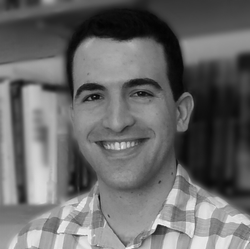 Brendan Price joins UC Davis from the Massachusetts Institute of Technology, where his dissertation studied how workers and firms adjust to globalization, technological change, and labor market reforms. A research affiliate of the UC Davis Center for Poverty Research, Price has broad interests within labor economics, public finance, spatial economics, and international trade. He specializes in the study of U.S. and European labor markets using applied microeconomic tools paired with large-scale administrative datasets. Current projects include a firm-level analysis of how Chinese import competition has reshaped the U.S. labor market; a study of how "cohort-crowding" impacts hiring and training in entry-level labor markets; and an evaluation of Germany's Hartz IV reform, which overhauled the provision of long-term unemployment benefits.
Brendan Price joins UC Davis from the Massachusetts Institute of Technology, where his dissertation studied how workers and firms adjust to globalization, technological change, and labor market reforms. A research affiliate of the UC Davis Center for Poverty Research, Price has broad interests within labor economics, public finance, spatial economics, and international trade. He specializes in the study of U.S. and European labor markets using applied microeconomic tools paired with large-scale administrative datasets. Current projects include a firm-level analysis of how Chinese import competition has reshaped the U.S. labor market; a study of how "cohort-crowding" impacts hiring and training in entry-level labor markets; and an evaluation of Germany's Hartz IV reform, which overhauled the provision of long-term unemployment benefits.
Price will teach Ph.D. Labor Economics in the winter quarter and Intermediate Microeconomic Theory in the spring. A native of the Northeast, he enjoys hiking, kayaking, running, and poetry.
Sanjay R. Singh
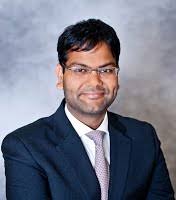 Assistant Professor of Economics
Assistant Professor of Economics
Sanjay R. Singh earned his Ph.D. at Brown University, with a thesis titled Essays in Macroeconomics and Secular Stagnation. His primary areas of specialization are macroeconomics, monetary economics and international economics. Singh earned his B.A. in Economics at St. Stephen’s College in New Delhi and his work has appeared in IMF Economic Review.
Jenna Stearns
Assistant Professor of Economics
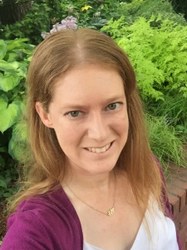 Jenna Stearns earned her Ph.D. at UC Santa Barbara. Her primary research interests include family, gender, education, and health economics. She is particularly interested in the relationship between fertility choices and investments in human capital. Her current research examines the effects of family-friendly policies on labor market choices, productivity, family structure, education, and health outcomes. She uses state, national, and institutional policy changes as quasi-experimental variation in access to paid leave in order to identify causal estimates of program effects. Her research suggests that paid leave benefits can have large welfare-improving effects and may be a way to reduce socioeconomic disparities in health and labor market outcomes. It also highlights the fact that some policies that are aimed at promoting gender equality in the workplace can have negative consequences for women. Stearns’ work has appeared in the Journal of Health Economics and the Journal of Economic Perspectives.
Jenna Stearns earned her Ph.D. at UC Santa Barbara. Her primary research interests include family, gender, education, and health economics. She is particularly interested in the relationship between fertility choices and investments in human capital. Her current research examines the effects of family-friendly policies on labor market choices, productivity, family structure, education, and health outcomes. She uses state, national, and institutional policy changes as quasi-experimental variation in access to paid leave in order to identify causal estimates of program effects. Her research suggests that paid leave benefits can have large welfare-improving effects and may be a way to reduce socioeconomic disparities in health and labor market outcomes. It also highlights the fact that some policies that are aimed at promoting gender equality in the workplace can have negative consequences for women. Stearns’ work has appeared in the Journal of Health Economics and the Journal of Economic Perspectives.
Andrew Todd
Assistant Professor of Psychology
 Andrew Todd comes to UC Davis from the University of Iowa, where he was an assistant professor in the Department of Psychological and Brain Sciences. Todd earned his Ph.D. in social psychology at Northwestern University, after which he completed postdoctoral training at the University of Cologne (Germany). As director of the Social Inference Lab, Todd is currently studying a variety of topics related to perspective taking and empathy, the cognitive processes underlying social judgment, and intergroup relations. This research has been funded by the National Science Foundation.
Andrew Todd comes to UC Davis from the University of Iowa, where he was an assistant professor in the Department of Psychological and Brain Sciences. Todd earned his Ph.D. in social psychology at Northwestern University, after which he completed postdoctoral training at the University of Cologne (Germany). As director of the Social Inference Lab, Todd is currently studying a variety of topics related to perspective taking and empathy, the cognitive processes underlying social judgment, and intergroup relations. This research has been funded by the National Science Foundation.
Magdalena Wojcieszak
Associate Professor of Communication
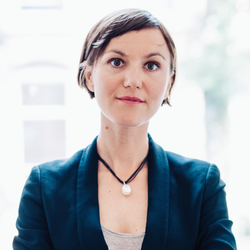 Magdalena Wojcieszak, who earned her Ph.D. at the University of Pennsylvania, joined UC Davis from the University of Amsterdam.
Magdalena Wojcieszak, who earned her Ph.D. at the University of Pennsylvania, joined UC Davis from the University of Amsterdam.
She is interested in political communication, public opinion, and in how the changing media environment creates both opportunities and challenges for informed publics, tolerant citizenry, and responsive governance. More specifically, she examines media and message effects on citizens’ attitudes, behaviors, and perceptions, especially in the context of polarization and intergroup relations in diverse societies. Some of the questions she explores include the following: Does news coverage about contentious political issues make citizens more polarized? What kind of media messages decrease prejudice toward personally disliked social groups? Are there ways to encourage people to select online content that challenges what they personally believe?
Wojcieszak’s work has appeared in the Journal of Communication, Public Opinion Quarterly, Political Communication, Communication Research, Political Psychology, New Media & Society, and the International Journal of Public Opinion Research, among other journals. She has received several awards for her teaching and research (including 2016 Young Scholar Award from ICA), and also several grants (including the ERC Starting grant). Wojcieszak serves as the editor of the International Journal of Public Opinion Research and on the editorial boards of the Journal of Communication, Political Communication, and EastBound electronic journal. Also, she is the board member at large for Europe of the International Communication Association.
Applying her research to real world conflicts, was working with the Center for Global Communication Studies (CGCS) at the Annenberg School for Communication, University of Pennsylvania, assessing public opinion about the conflict in Darfur and examining how Iranian citizens and journalists inside and outside Iran engage with and use various media outlets and online, mobile and offline communication tools.
